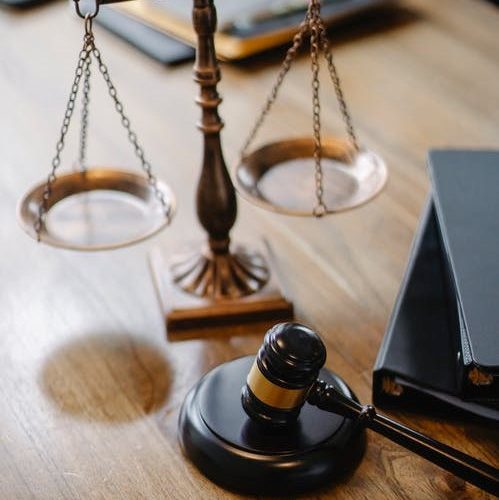Egyptian Law: Offers the Strongest Protection for your Intellectual Property
- October 19, 2022
- Posted by: Nermien Al-Ali
- Category: Learning Center

The term IP Crime or Intellectual Property Crime may be new to you, but being tricked into buying a to fake product, or a pirated software is probably not. As a business owner or manager, particularly of a successful brand, you will be painfully aware of the many ‘shady’ traders that are selling fake copies of your successful branded product to knowing or misled consumers. It is at that time that you start considering the need for taking enforcement measures.
Egyptian law offers trademark and other intellectual property owners a unique enforcement measure by taking part in the criminal proceedings against infringers before the court
Egyptian law provides the owner of the intellectual property under infringement a unique measure to initiate criminal proceedings directly, or join standing criminal proceedings as the aggrieved party. This is useful for anti-counterfeiting as Intellectual Property crimes seldom take priority with prosecutors given that counterfeiting is a misdemeanour and prosecutors devote most resources to combat “more serious crimes’ (felonies). This means, an intellectual property owner can initiate criminal proceedings through the Economic misdemeanour courts by initiating what is called a ‘direct misdemeanour’, or file a complaint with enforcement officers then join the ‘regular’ misdemeanour proceedings once charges are pressed by the prosecutor. In both ‘regular’ and ‘direct’ misdemeanour proceeding the intellectual property owner can join the proceedings as an affected party and play an active role in the conduct of the proceedings. This most often greatly affects the outcome of the criminal case given that prosecutors usually play a very passive role in misdemeanour proceedings. The affected party on the other hand is allowed by law to (i) present evidence of the offence; (ii) present a memorandum to the court explaining how the offence was committed and the laws against it; (iii) move the court to impose fines and other orders permitted under the IP Law; and (iv) seek temporary compensation for losses sustained as a result of the misdemeanour.
Anti-counterfeiting is not specifically defined under the IP Law. Instead the following offences – some of which broadens the definition of counterfeiting – are recognized as intellectual property offences under the law:
- Affixing a trademark on goods or services without the authorization of its owner;
- Affixing a trademark confusingly similar to a registered mark;
- Using in bad faith a fake or copied trademark;
- Sale or possession of goods and services with a fake or copied trademark with knowledge;
- Affixing incorrect or deceptive commercial indicators on goods, services, stores, warehouses, stationary, or advertisements; and
- Affixing incorrect geographical indicators on goods or services to mislead the public as to their origin.
Offences 1 to 4 are punishable by a fine ranging from five to twenty thousand Egyptian Pounds increased to ten to fifty thousand Egyptian Pounds in case of recurrence. In addition, the court may impose an imprisonment term of two months at least, and order the closure of the infringing establishment for a maximum of six months. A jail sentence and closure are mandatory in cases of recurrence. A jail sentence is the one with the most deterrent effect despite that such sentences are hardly enforced. In all cases the court should order the confiscation of the infringing goods or services, and any equipment or tools used making them.
Offences 5 and 6 are punishable by a fine ranging from two to ten thousand Egyptian Pounds, increased to four to twenty thousand Egyptian Pounds in case of recurrence. In addition, the court may impose an imprisonment term of six months at most, and order the closure of the infringing establishment for a maximum of six months. A one month jail sentence at least and closure orders are mandatory in cases of recurrence. In all cases the court should order the confiscation of the infringing goods or services, and any equipment or tools used therein.
The law authorizes the court in any criminal or civil proceedings relating to intellectual property infringement to order the destruction of the infringing goods and the equipment used, as well as the publication of the judgment in a daily newspaper at the expense of the infringing party.
In practice, the intellectual property owner files a complaint against a party importing, selling, making or possessing counterfeit products with the Supply Investigation Unit of the Ministry of Interior or the Internal Trade Department of the Ministry of Trade (the ‘”Concerned Authority”). The Concerned Authority will investigate and send samples to the Connection Point for the latter to advice on whether the marks on the samples withdrawn from the complainant and the complained against are identical or confusingly similar. If they are, then the Concerned Authority will refer the matter to the prosecutor and attach the opinion of the Trademark Office. The prosecutor will in most cases give effect to the recommendation of the Concerned Authority, and press charges or dismiss the complaint, depending on their investigation. If charges are pressed then the matter will be referred to the misdemeanour court,.
Cairo Economic Court, the Court that considers all intellectual property civil and criminal cases

